Curriculum
A rigorous academic curriculum is the cornerstone of the Asheville School experience. Expectations are set high for our students, because we believe in what they can achieve and in the merit of the challenge it takes to get there. The more they grow and learn, the more they understand who they are meant to be. Our students graduate fully prepared for college—and for a life of purpose.
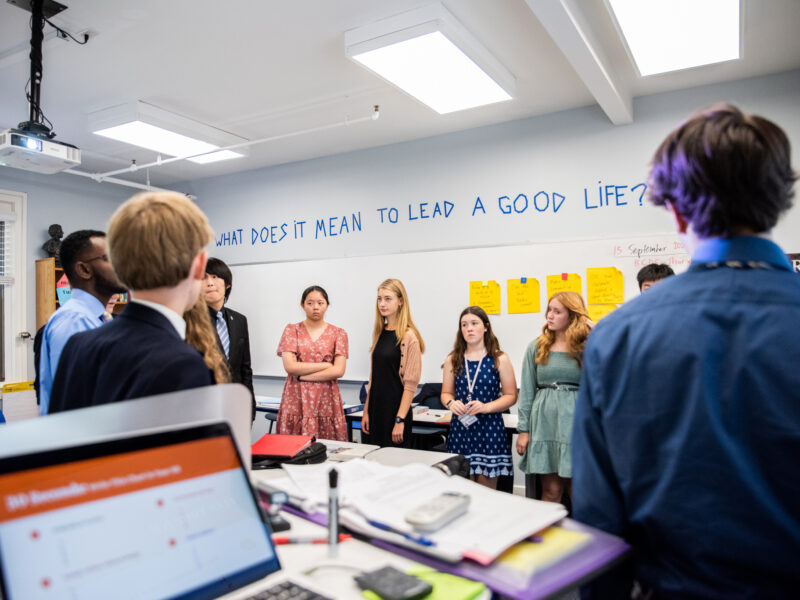
The ability to write and think critically equips us to thoughtfully approach the world’s complexity. We take a broad and varied approach to the study of the written world, surveying a range of periods and genres.
- Ancient Studies
- Honors World Studies
- Research Seminar and Intro to Studio Art
- AP European Studies: English
- Honors European Studies: History
- Honors American Studies: History
- AP American Studies: English
- Honors Humanities Seminar
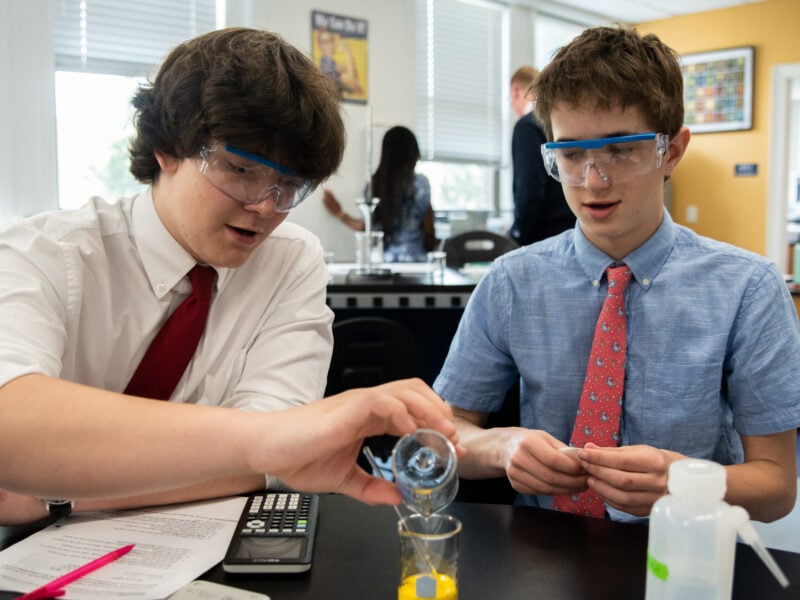
Our science curriculum produces critical thinkers who can read and evaluate scientific data and understand the basic principles of major scientific disciplines. Each student develops a lively curiosity about how the world functions—and eagerness to explore it.
- First Year Biology
- AP Biology
- First Year Chemistry (Regular and Honors Offered)
- AP Chemistry
- Honors Physics
- AP Physics 1 and 2
- AP Physics: Mechanics and Electricity & Magnetism
- AP Environmental Science
- Psychology
- Anatomy and Physiology
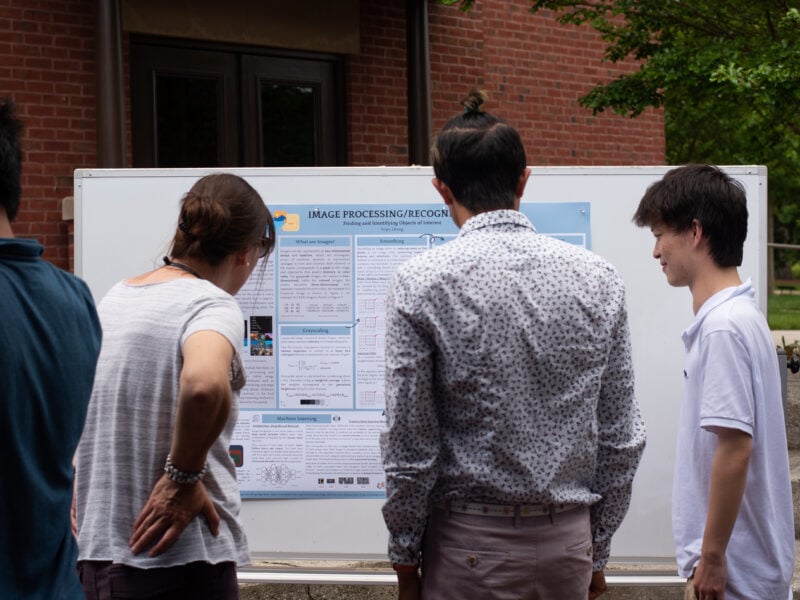
Find joy in the exploration of mathematics, from statistics to computer science. Grounded in fundamental principles and problem-solving skills, our curriculum empowers students with an enduring understanding of the numeric world.
- Quantitative Reasoning 1 and 2
- Precalculus with Statistics
- AP Statistics
- Advanced Topics in Mathematics
- Honors Geometry
- Honors Algebra II
- Honors Precalculus
- Honors Precalculus Advanced
- AP Calculus AB
- AP Calculus BC
- Introduction to Computer Science Principles
- AP Computer Science Principles
- AP Computer Science A
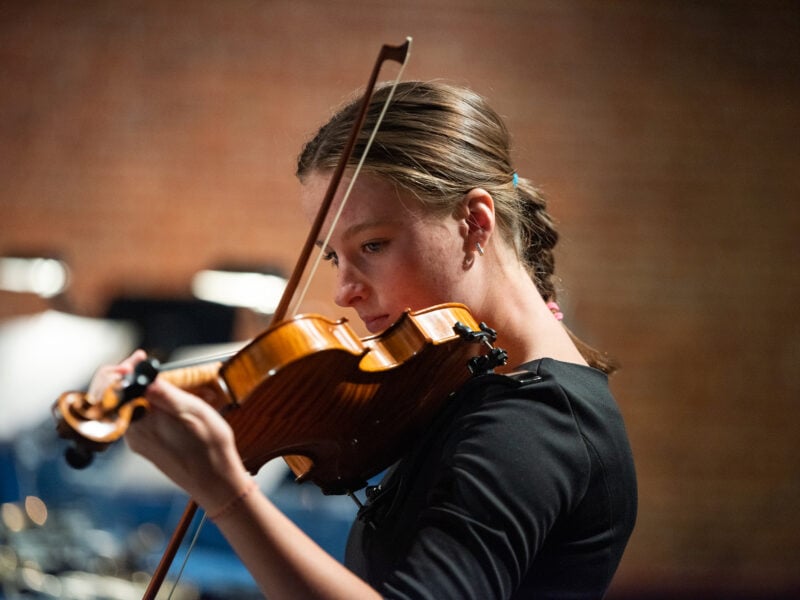
By fostering creativity and an innovative spirit, we prepare students for their future. The arts are our pathway to discover and celebrate our diverse perspectives and talents while building respect and connection within our community.
- Studio Art I
- Studio Art II
- Studio Art III – IV
- AP Studio Art: 2-D Portfolio
- Applied Music
- AP Music Theory
- Chorus
- Chamber Choir
- Handbell Ensemble
- Instrumental Ensemble
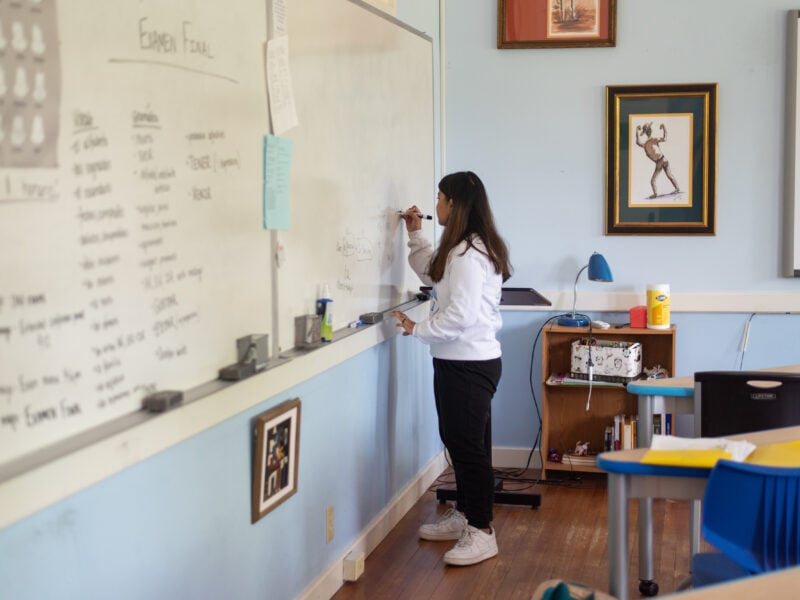
We challenge our students to cultivate curiosity, empathy, and a global perspective. Students use their developing language skills and cultural awareness to communicate with others—both at home and in their travels—in order to find their place in a complex and connected world.
- French I-V (Honors and AP Offered)
- Spanish I-VI (Honors and AP Offered)
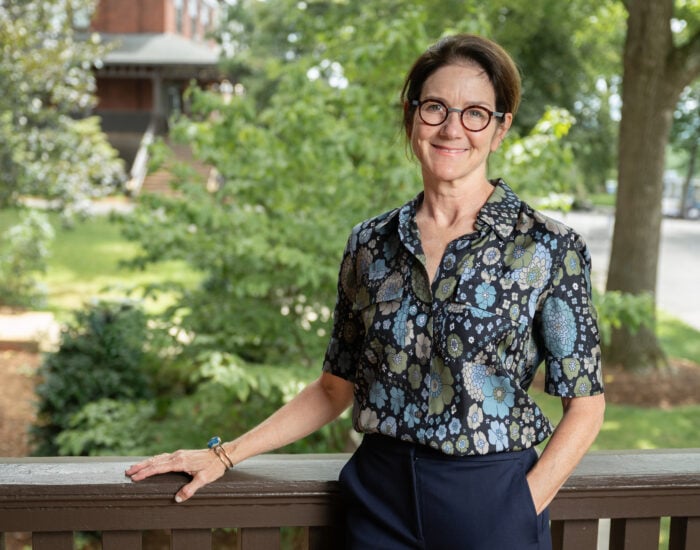
Between semesters, Asheville School students can dive into topics that transcend the classroom, from unpacking Creole cuisine to understanding the complexities of refugee resettlement.
Visionaries. Pioneers. Trailblazers. Each year, we welcome a range of thought leaders to our campus to engage in substantive conversations with our students about what it means to pursue a life of meaning and purpose beyond Asheville School.
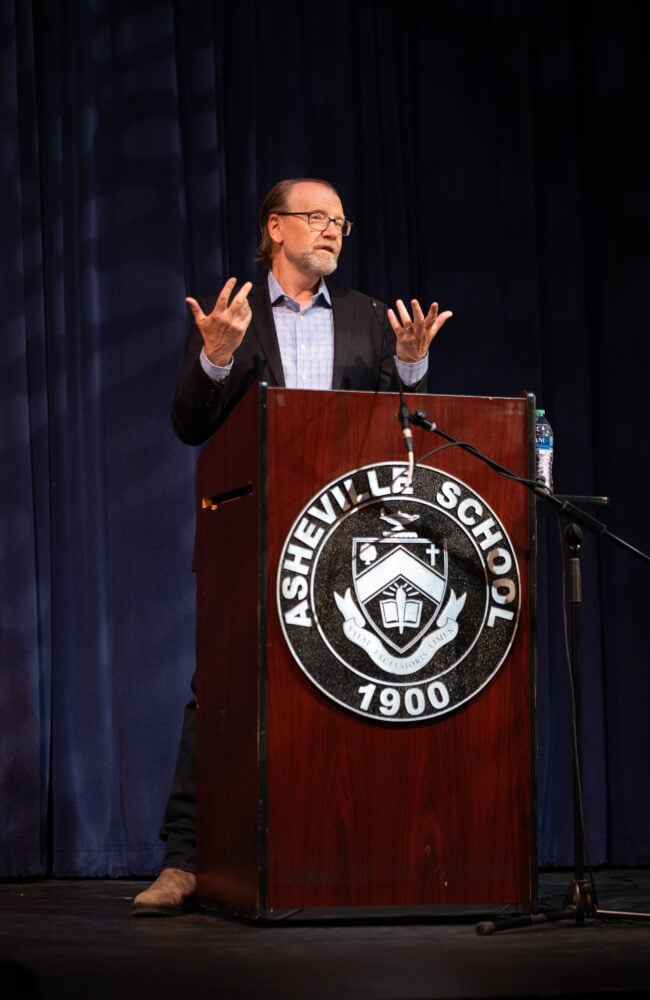
Biography
George Saunders is the author of a novel, four collections of short stories, a novella, and a book of essays. His most recent collection, Liberation Day, is a masterful collection that explores ideas of power, ethics, and justice, and cuts to the very heart of what it means to live in community with our fellow humans. Saunders’ long-awaited novel, Lincoln in the Bardo, was published in 2017 and helped him earn the Man Booker Prize. Saunders’s collection, Tenth of December, was the winner of the 2014 Story Prize and the 2014 Folio Prize. The recipient of a 2006 MacArthur Foundation Genius grant, his work appears regularly in The New Yorker, GQ, and Harpers Magazine, and has appeared in the O’Henry, Best American Short Story, Best Non-Required Reading, and Best American Travel Writing anthologies. He is the recipient of a Guggenheim Fellowship and was named one of the 100 Most Influential People in the World by TIME Magazine in 2013.
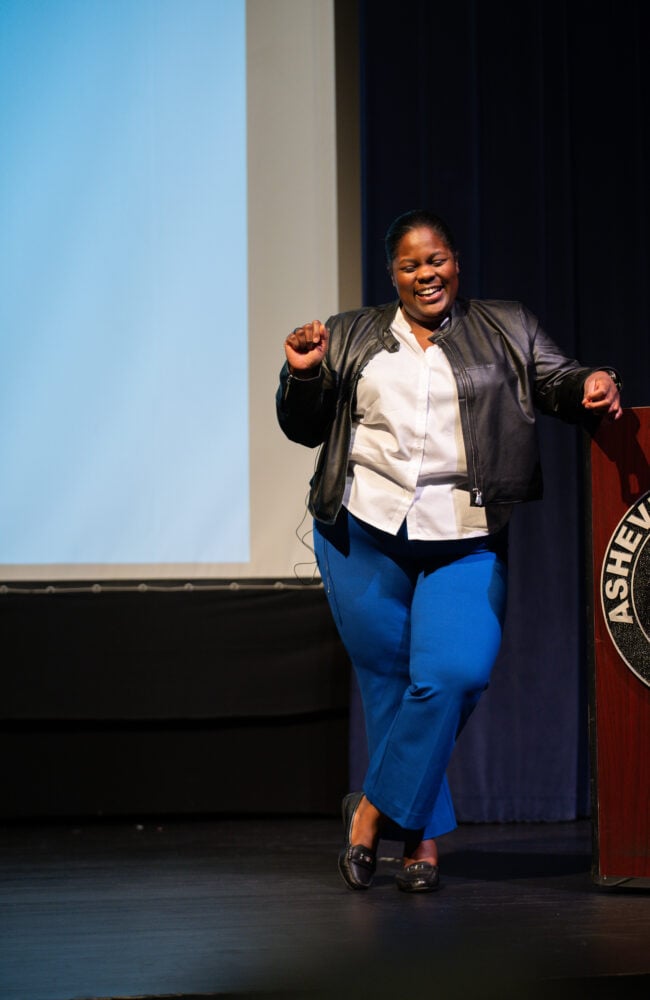
Biography
Mirna Valerio is a native of Brooklyn, NY, a former educator, cross-country coach, ultrarunner, obstacle course enthusiast, and author of the recently published memoir, A Beautiful Work in Progress. Although she began running in high school, she recommitted to the sport after a health scare in 2008. It was then that her love for running and all its attendant benefits were reignited. She soon started her blog Fatgirlrunning, about her experiences as a larger woman in a world of thinner athletes. Mirna's athletic story was featured in the WSJ, Runner’s World, on the NBC Nightly News, CNN, on the CW Network, and in the viral REI-produced documentary short, The Mirnavator. Her writing has been featured in Women’s Running Magazine, Self Magazine Online, Outside Online, and Runner's World Magazine. Most recently, she was chosen as a 2018 National Geographic Adventurer of the Year.
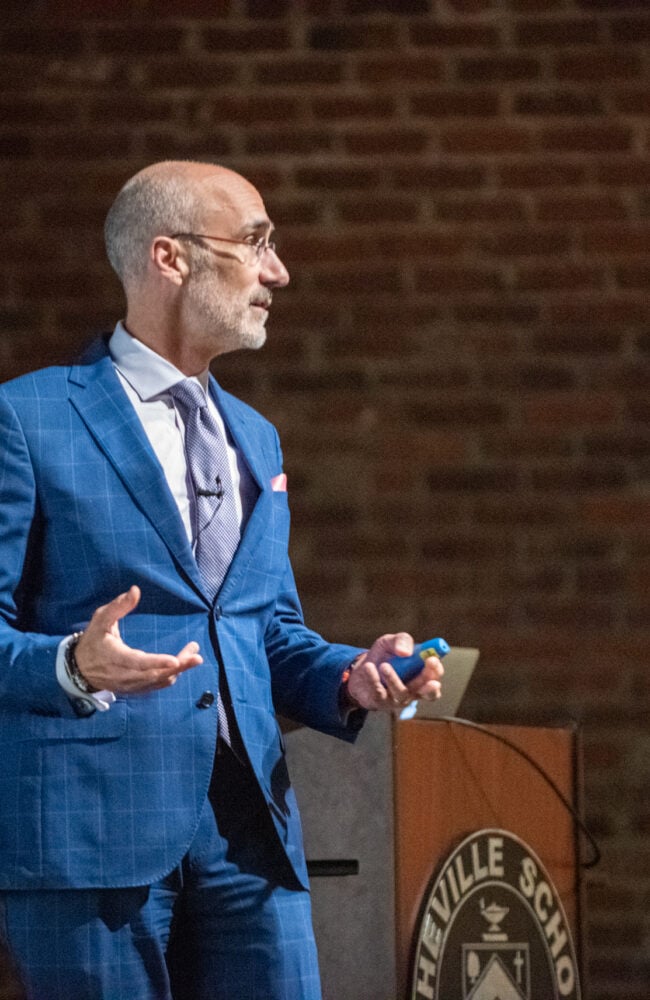
Biography
Arthur C. Brooks is a professor at the Harvard Kennedy School and the Harvard Business School, where he teaches courses on leadership and happiness. He is also a columnist at The Atlantic, where he writes the popular “How to Build a Life” column. In 2009, Brooks became the president of the American Enterprise Institute in Washington, DC, one of the world’s most influential think tanks, which he led for a decade. During this period, he was selected as one of Fortune Magazine’s “50 World’s Greatest Leaders” and was awarded seven honorary doctorates.
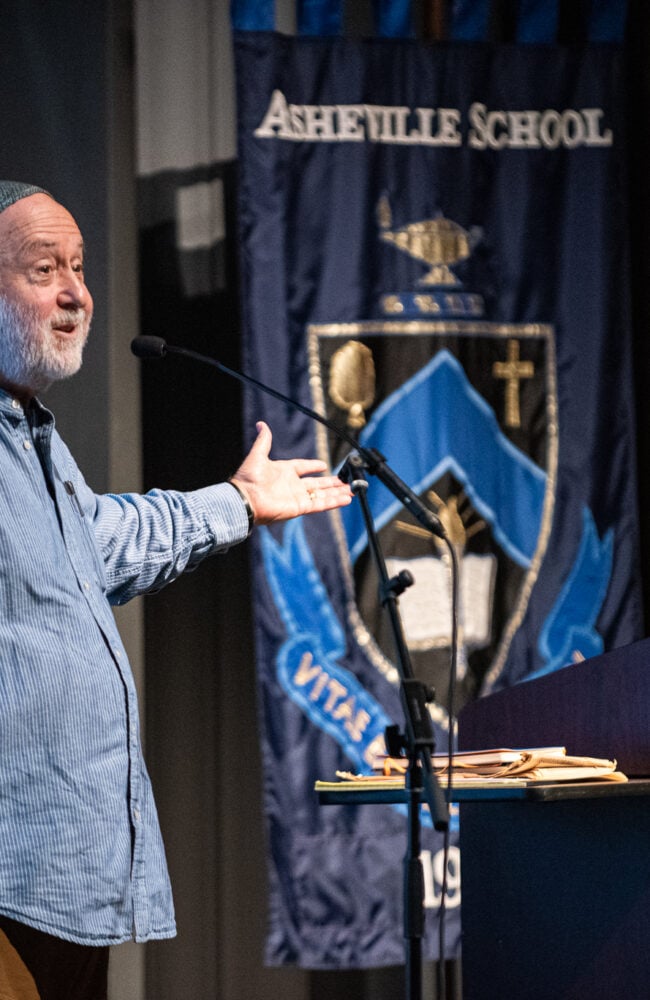
Biography
Dr. Richard Chess is a published essayist and poet. His poems have appeared in Best American Spiritual Writing 2005, Telling and Remembering: A Century of American Jewish Poetry, and The Bloomsbury Anthology of Contemporary American Jewish Poetry. He is also Professor Emeritus at UNC Asheville, where for more than three decades he taught courses in English/Creative Writing and Jewish Studies.

Biography
Clint Smith is a staff writer at The Atlantic. He is the author of the narrative nonfiction book, How the Word Is Passed: A Reckoning With the History of Slavery Across America, which was a #1 New York Times Bestseller and a 2021 National Book Critics Circle Award Winner for Nonfiction, and the poetry collection Counting Descent, which won the 2017 Literary Award for Best Poetry Book from the Black Caucus of the American Library Association and was a finalist for an NAACP Image Award.
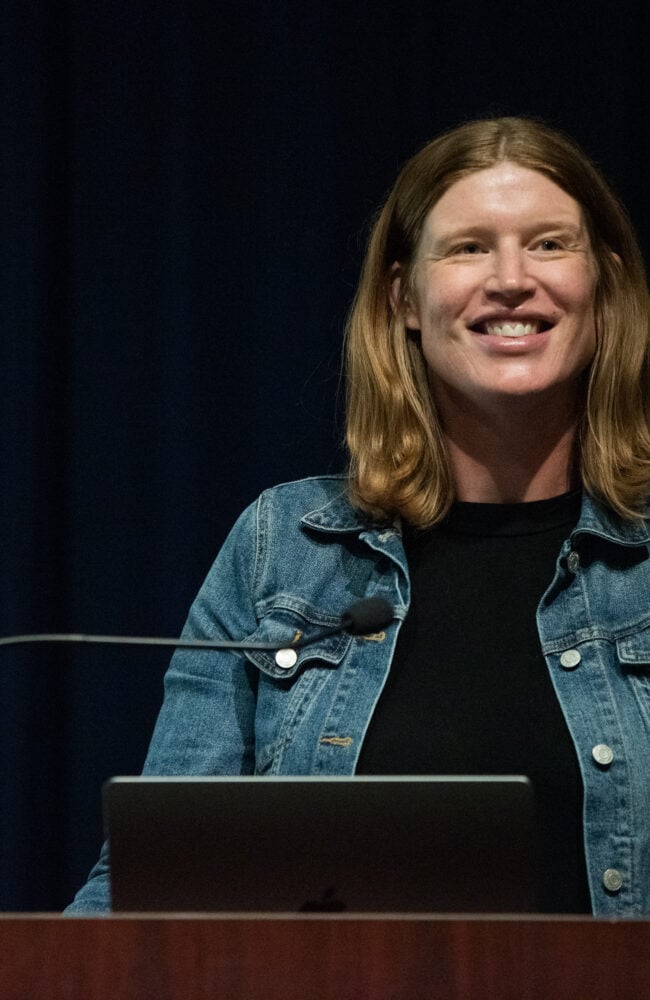
Biography
Becky is in her sixth season with the Orlando Magic, serving as director of player services/pro personnel. She works closely with the Magic's scouting department on both the college and professional levels, while also supporting players, coaches, and members of the front office through the organization's player development programming.
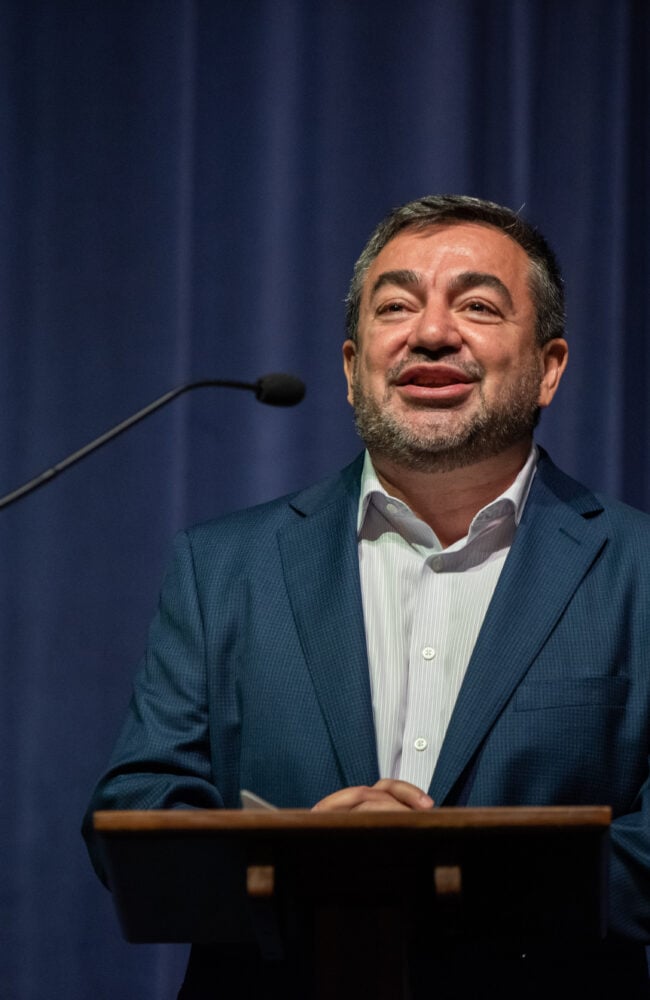
Biography
Imam Antepli is a globally recognized interfaith scholar and leader of cross-religious and cross-cultural dialogue, an associate professor and served as the first-ever Muslim Chaplin at Duke University. He has built multiple organizations and initiatives to facilitate religious and spiritual life across America’s college campuses, sowing seeds of understanding between religions while upholding their cultural integrity and dignity.
Biography
Acclaimed actor and playwright Mike Wiley has spent the last decade fulfilling his mission to bring educational theatre to young audiences and communities across the country. In the early days of his career, Wiley found few theatrical resources to shine a light on key events and figures in African-American history. To bring these stories to life, he started his own production company. Through his performances, Wiley has introduced countless students and communities to the legacies of Emmett Till, Henry “Box” Brown and more.
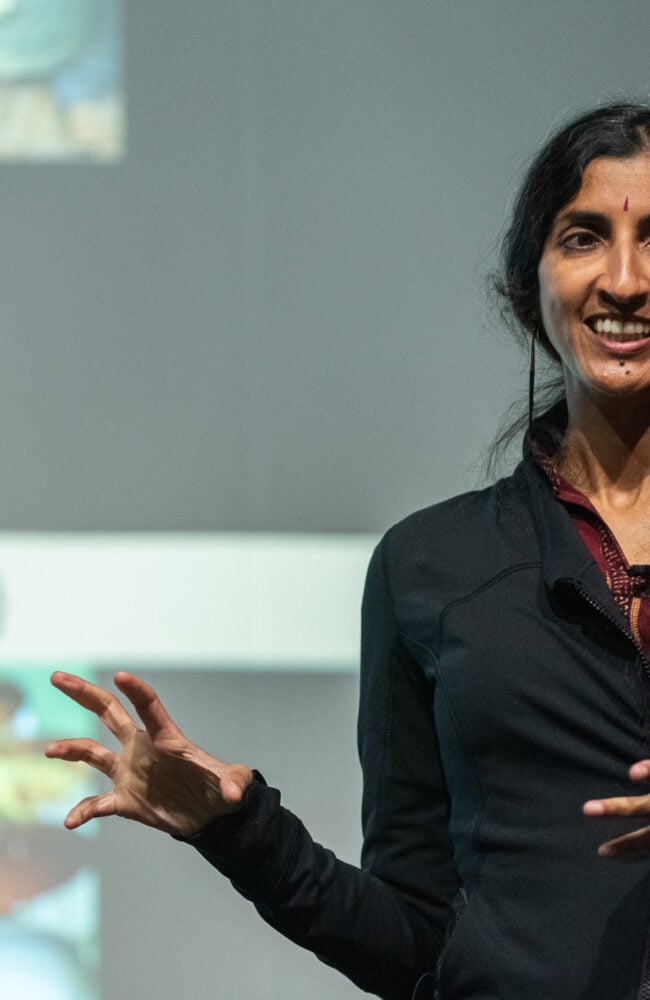
Biography
Aparna Keshaviah is a classically trained dancer and composer who blends Indian and Western artistic traditions to modernize Bharatanatyam dance and music. She has performed widely at institutions such as the American Academy in Rome and National Museum for Women in the Arts and co-founded the Dance Artist Residency in Haywood County. In 2006, she was awarded a Fulbright grant in Dance to India for a study that used statistical methods to characterize the diversity of Indian dance traditions. Keshaviah holds a dual career as a Principal Researcher at Mathematica, where she leads research to improve public health.
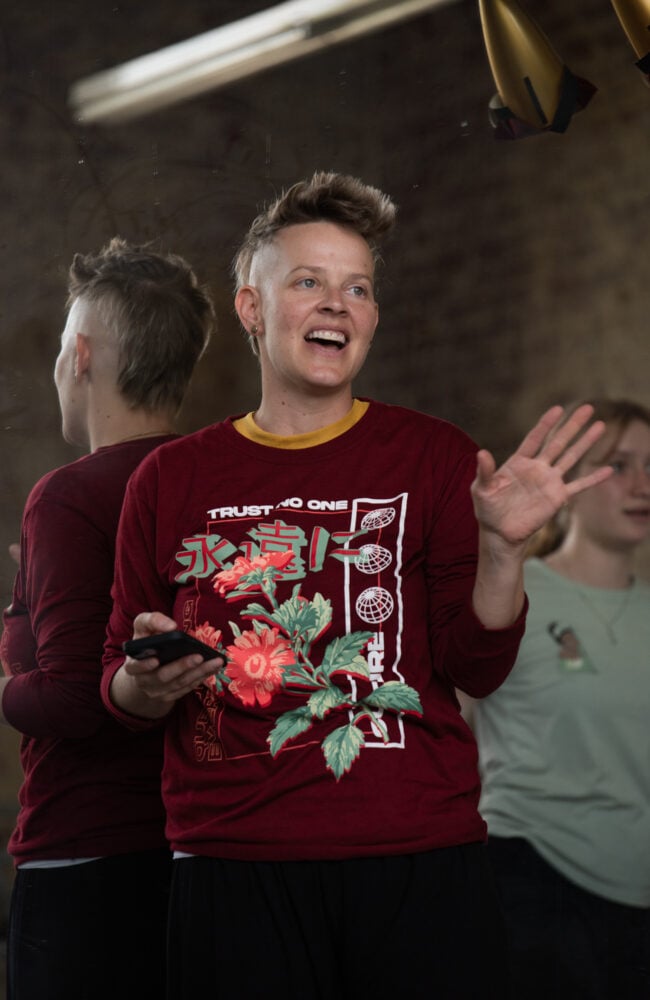
Biography
Kelly Bartnik is an industry leader in Immersive Theater with an extensive ability to produce, write, choreograph, direct , perform and run large scale Immersive Experiences. She is a NY-based choreographer, performer, director, teacher and producer and was an original cast member of both the Boston and NY productions of Sleep No More. She has performed in the Immersive experiences Waking La Llorona and Portaleza, by Optika Moderna and The Unbrunch, created by Cinereal Productions.

Biography
Dubbed “the most popular poet in America” by Bruce Weber in the New York Times, Billy Collins is famous for conversational, witty poems that welcome readers with humor but often slip into quirky, tender, or profound observation on the everyday, reading and writing, and poetry itself.
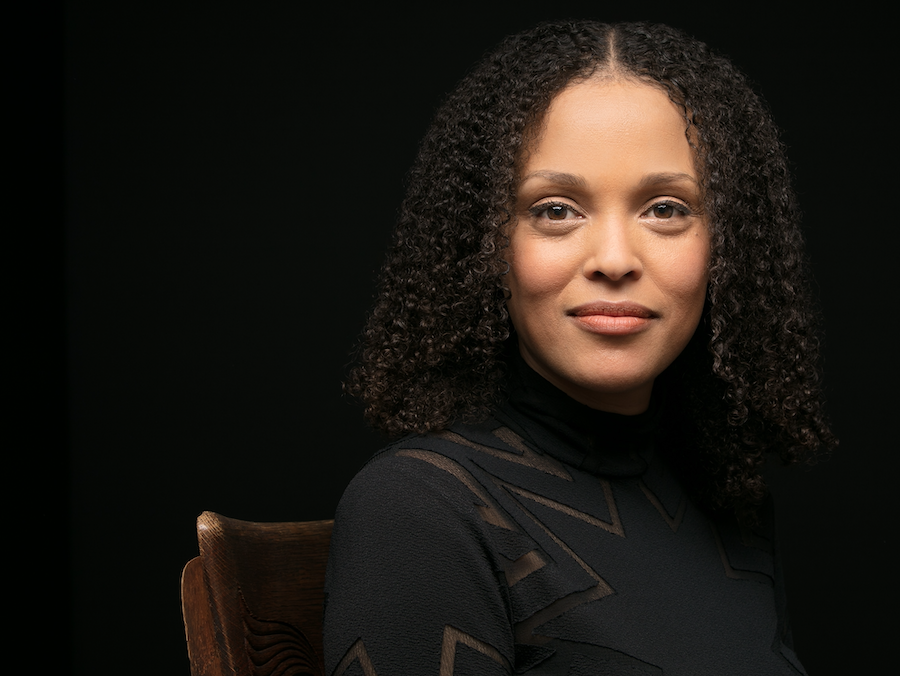
Biography
Jesmyn Ward received her MFA from the University of Michigan and has received the MacArthur Genius Grant, a Stegner Fellowship, a John and Renee Grisham Writers Residency, the Strauss Living Prize, and the 2022 Library of Congress Prize for American Fiction. She is the historic winner—first woman and first Black American—of two National Book Awards for Fiction for Sing, Unburied, Sing (2017) and Salvage the Bones (2011). She is currently a professor of creative writing at Tulane University and lives in Mississippi.
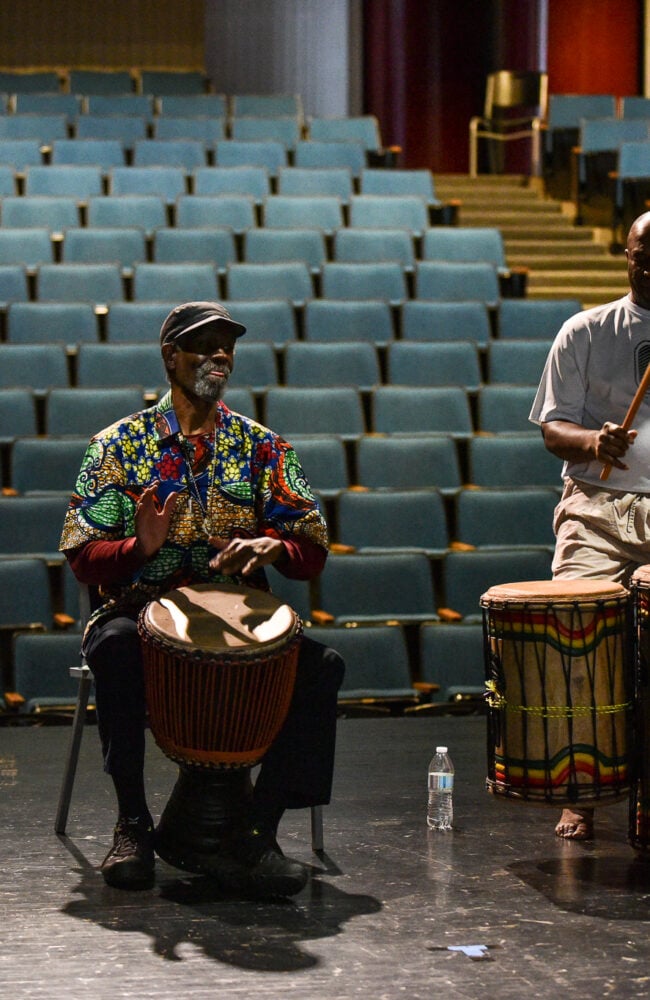
Biography
Sherone Price is an associate professor of dance studies in Appalachian State's Department of Theatre and Dance, where he also serves as Dance Director of the Diyé African Dance and Drum Ensemble. Khalid Abdul N'Faly Saleem is an internationally renowned African music specialist. He joined the faculty of Appalachian State University’s Department of Theatre and Dance, where he serves as an instructor of African Drumming for Dance, and as Music Director of Diyé African Dance and Drum Ensemble with Sherone Price, Dance Director.

Biography
U.S. Congressman John Lewis has served as U.S. Representative of Georgia's Fifth Congressional District since 1986. He is widely recognized as an icon of the Civil Rights Movement—having pivotal roles as Chairman of the Student Nonviolent Coordinating Committee (SNCC), as a speaker at the historic 1963 March on Washington and during the 1964 Mississippi Freedom Summer. His efforts to fight for voting rights in Selma, Alabama, hastened the passage of the Voting Rights Act of 1965.
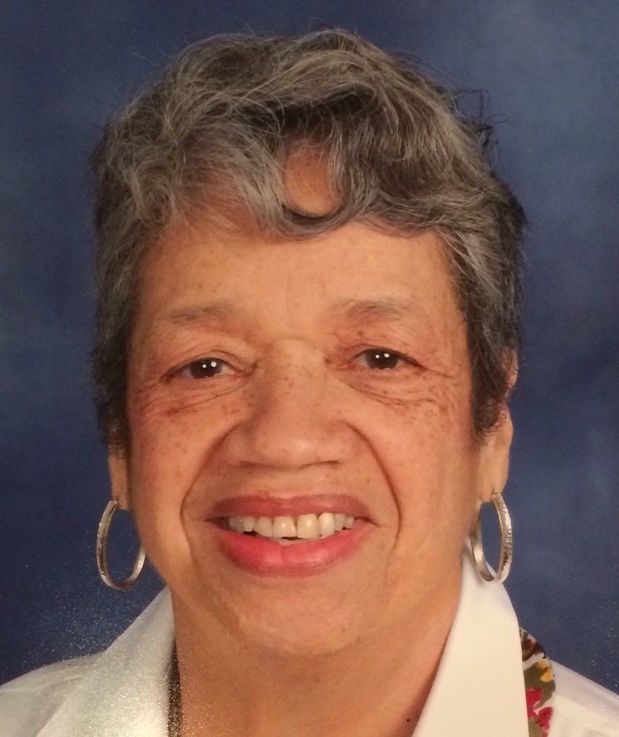
Biography
NASA Pioneer Dr. Christine Darden, who is featured in Margot Lee Shetterly's best-seller "Hidden Figures," was hired at NASA in 1967 as a Computer/Data Analyst, and over the course of her career became the first African-American woman promoted into the Senior Executive Service at the NASA Langley Research Center. Darden earned two NASA Medals--one for her work and leadership of the Sonic Boom Program, and the other for her active involvement in working with and encouraging students to pursue careers in math and science.
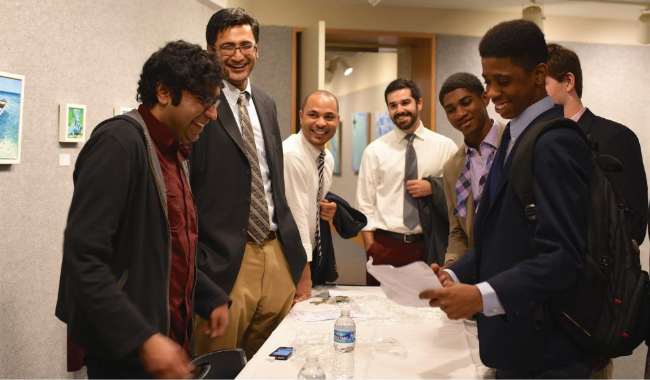
Biography
Hari Kondabolu is a Brooklyn-based comedian, actor, filmmaker and podcast host. He has performed on the Late Show with David Letterman, Conan, Jimmy Kimmel Live, John Oliver’s New York Standup Show, and more.

Biography
International best-selling author and award-winning critic and essayist Daniel Mendelsohn has penned seven books, and his essays and reviews have appeared in numerous national publications, most frequently the New Yorker, the New York Review of Books and The New York Times.
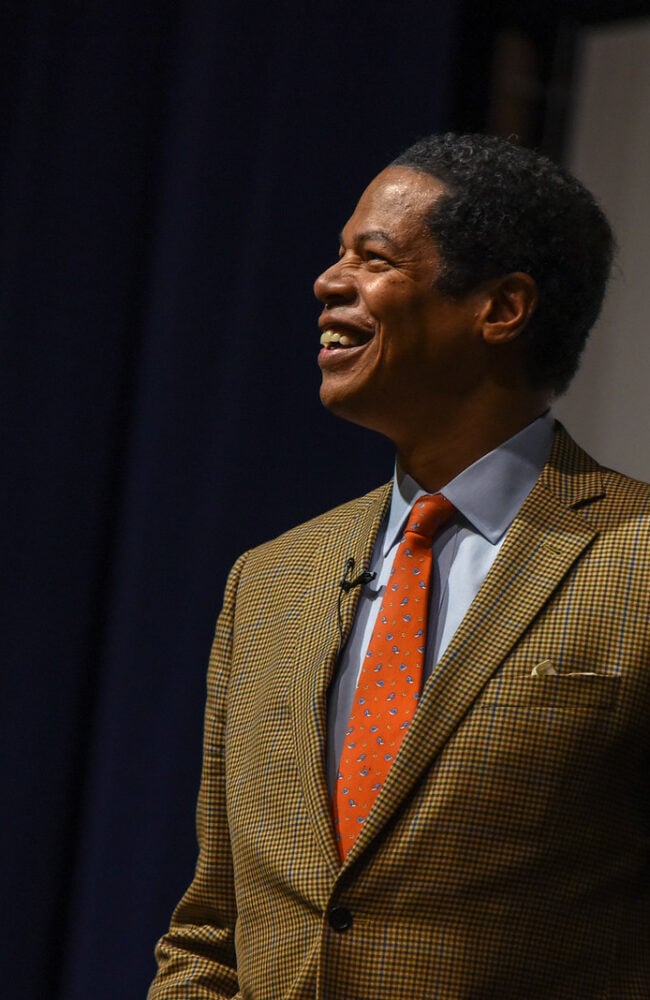
Biography
Reverend Joseph Watkins is a GOP strategist who worked as an aide for President George H. W. Bush. He is a former host of CNN's "Crossfire" and currently serves as Pastor of Christ Evangelical Lutheran Church in North Philadelphia.
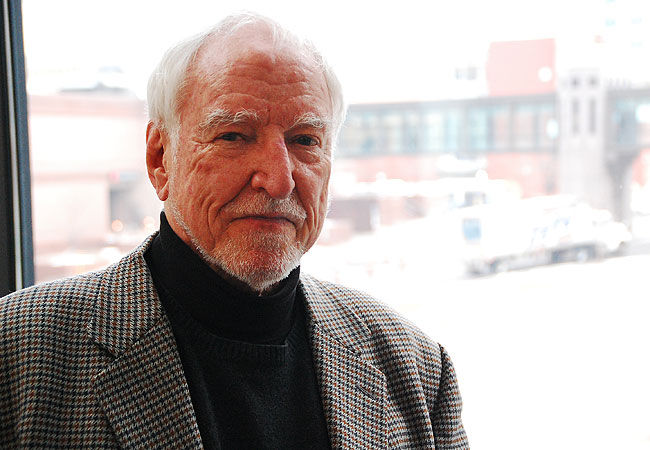
Biography
Ambassador James Hormel was appointed as Ambassador to Luxembourg in 1999. He was the first openly gay U.S. Ambassador. The contentious confirmation battle that preceded the recess appointment by President Clinton put gay rights in the national spotlight and solidified Hormel's position as a champion of that cause, which he had been supporting for many years. He also served on two separate delegations to the United Nations and was a two-time delegate to the Democratic National Convention. Hormel is the recipient of numerous awards honoring his leadership and philanthropy, including the National Society of Fundraising Executives' 1996 Outstanding Philanthropist award and the 2001 Human Rights Campaign Lifetime Achievement Award.

Biography
Political Commentators Sally Kohn and Tara Setmayer have both been featured in multiple news outlets and publications. Kohn is a columnist for the Daily Beast known for her progressive views. She is ranked by Mediaite as one of the 100 most influential pundits on television and by the Advocate as the 35th most influential LGBT person in the media. Setmayer, also a columnist for the Daily Beast, is a noted conservative. She is a former communications director on Capitol Hill and has appeared on outlets that include Fox News, HBO, CNN, C-SPAN, The Wall Street Journal and NPR.
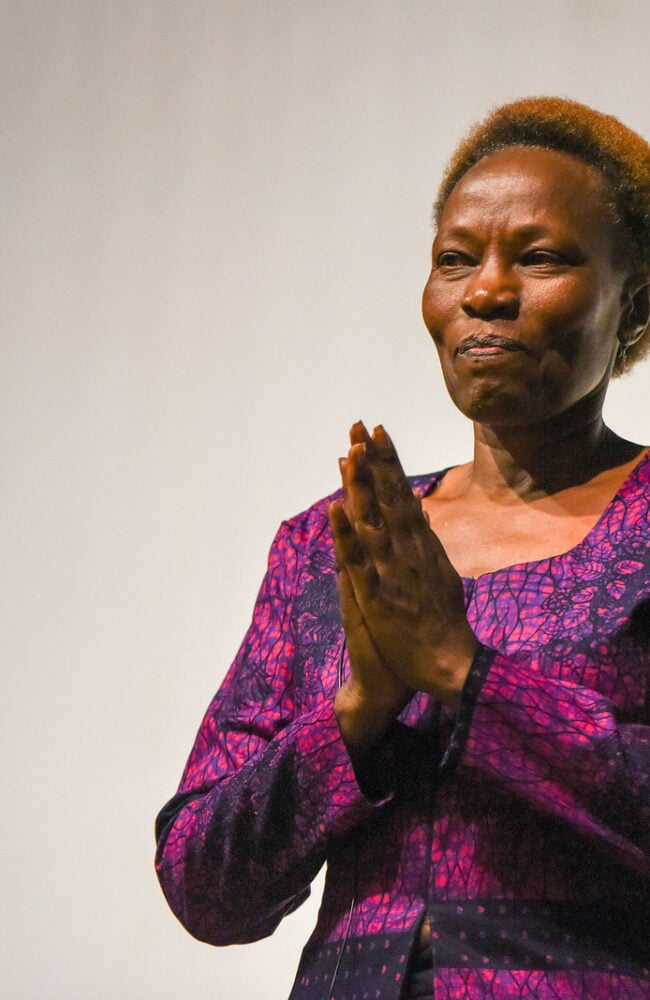
Biography
Dr. Karambu Ringera is the founder and president of International Peace Initiatives, an organization that works to support sustainable initiatives that improve livelihoods and enhance quality of life.
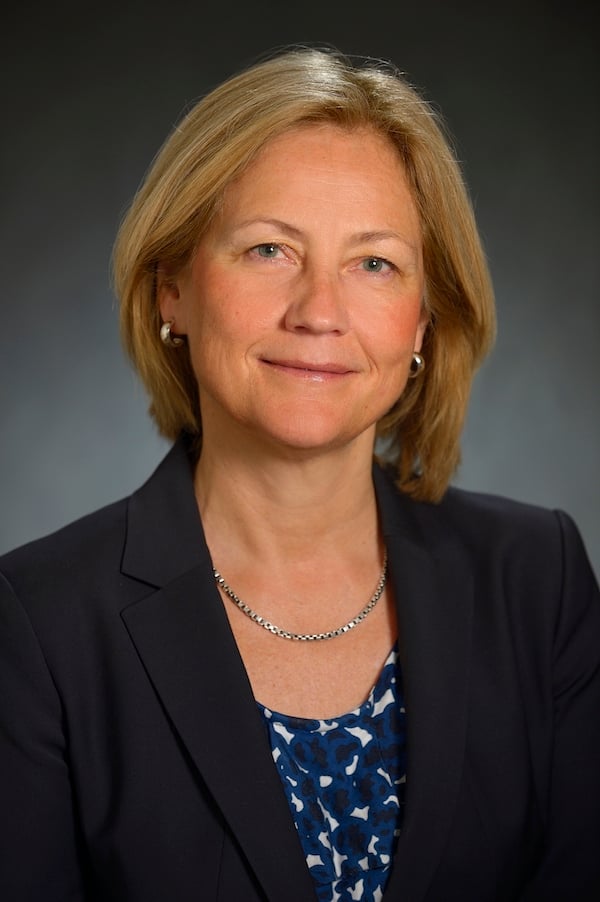
Biography
Dr. Frances Jensen is an internationally known expert in neurology and the teenage brain. Jensen co-authored “The Teenage Brain,” which offers a neuroscientist’s approach to raising adolescents and young adults, and she is the chair of neurology at the Perelman School of Medicine at the University of Pennsylvania.
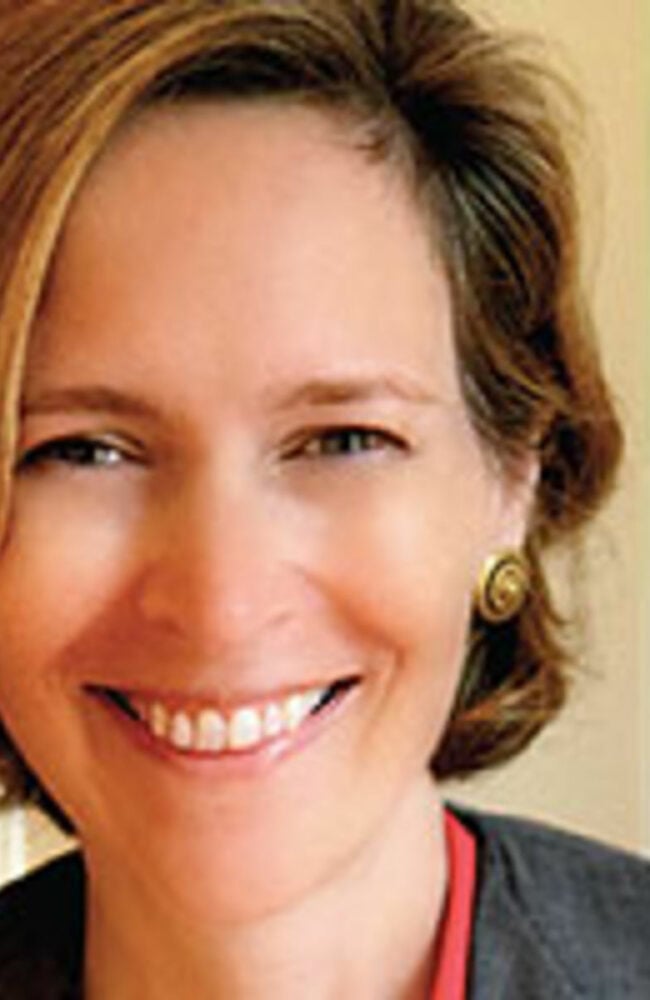
Biography
Author Amity Shlaes has written four New York Times bestsellers: “The Forgotten Man: A New History of the Great Depression,” “The Forgotten Man: Graphic,” a full length illustrated version of the same book drawn by Paul Rivoche, “Coolidge,” a full-length biography of the 30th president and “The Greedy Hand: How Taxes Drive Americans Crazy.”

Biography
Richard Blanco was selected by President Barack Obama as the fifth inaugural poet in U.S. history, and he is the youngest and the first Latino, immigrant, and gay person to serve in such a role. Blanco was born in Spain to Cuban exiled parents and raised in Miami, Florida. His work grapples with themes of cultural identity, community and belonging.
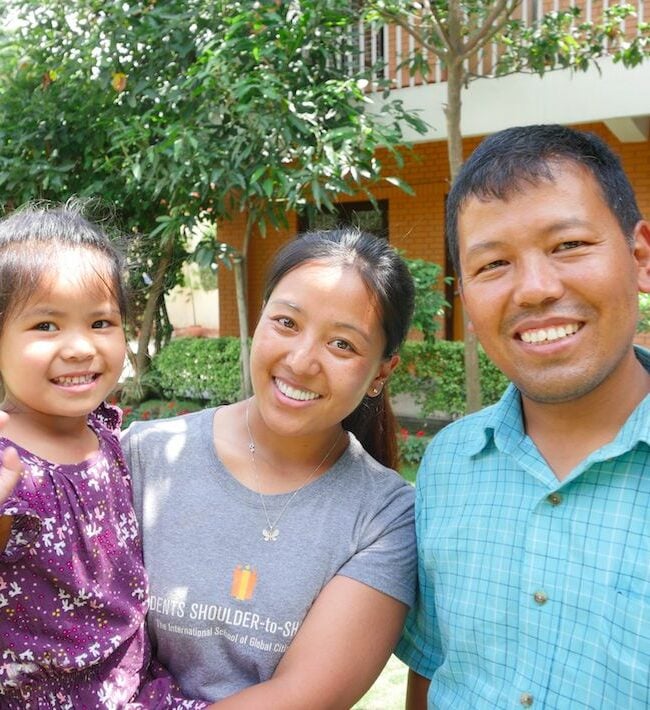
Biography
Karma Sherpa, executive director and co-founder of The Small World, a nonprofit organization that supports community development and girls' education in rural Nepal. The Small World works with Asheville School's service learning partner, Students Shoulder to Shoulder.
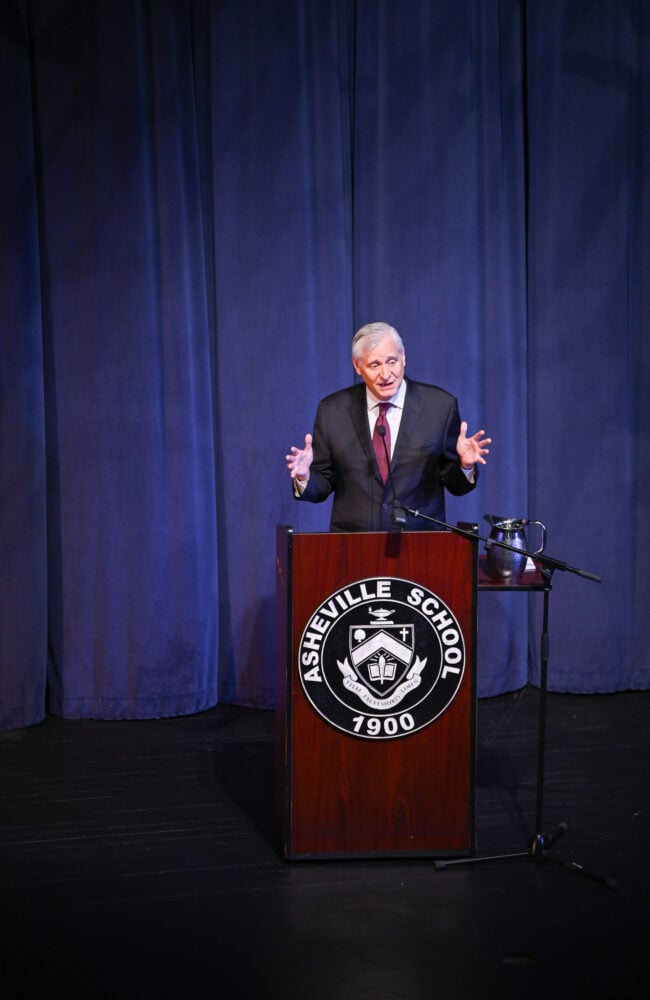
Biography
Jon Meacham is a Pulitzer Prize–winning biographer. The author of the New York Times bestsellers And There Was Light: Abraham Lincoln and the American Struggle, Thomas Jefferson: The Art of Power, American Lion: Andrew Jackson in the White House, Franklin and Winston: An Intimate Portrait of an Epic Friendship, Destiny and Power: The American Odyssey of George Herbert Walker Bush, The Soul of America: The Battle for Our Better Angels, and His Truth Is Marching On: John Lewis and the Power of Hope, he is a distinguished visiting professor at Vanderbilt University and a fellow of the Society of American Historians. Meacham lives in Nashville and in Sewanee with his wife and children.